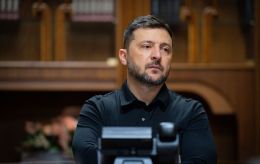Fourth is not too much: Why Zelenskyy wants Europe's involvement in peace talks with Russia
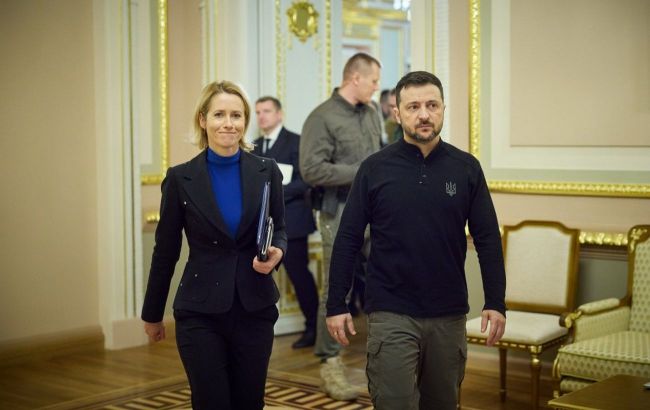 Photo: Head of European Diplomacy Kaja Kallas and President of Ukraine Volodymyr Zelenskyy (president.gov.ua)
Photo: Head of European Diplomacy Kaja Kallas and President of Ukraine Volodymyr Zelenskyy (president.gov.ua)
The topic of peace talks with Russia is being discussed both within Ukraine and among its Western partners. While there are no clear specifics yet, it is apparent that positions are currently being formed regarding what the future peace agreement should look like.
Read about what the West is saying and why President Volodymyr Zelenskyy wants to see Europe at the negotiating table in the material by RBC-Ukraine.
Contents:
- What the US says about peace talks
- What Europe says about peace talks
- Why Zelenskyy wants Europe involved
What the US says about peace talks
After appointing Keith Kellogg as the US Special Envoy for Ukraine and Russia, Donald Trump stated that the US is currently working on agreements to secure guarantees. "We made a lot of progress on Russia-Ukraine," he added.
He made this statement while commenting on the interest in an agreement regarding Ukraine's rare earth mineral resources in exchange for further US support. Sources within Zelenskyy's office told RBC-Ukraine that this is one of the items of the victory plan discussed with Trump before the 2024 election. Today, the President confirmed that Ukraine is open to investments, joint development of deposits, and extraction.
Previously, Trump stated that the negotiation process is already underway. "We are having very serious discussions about this war trying to get it ended," he said.
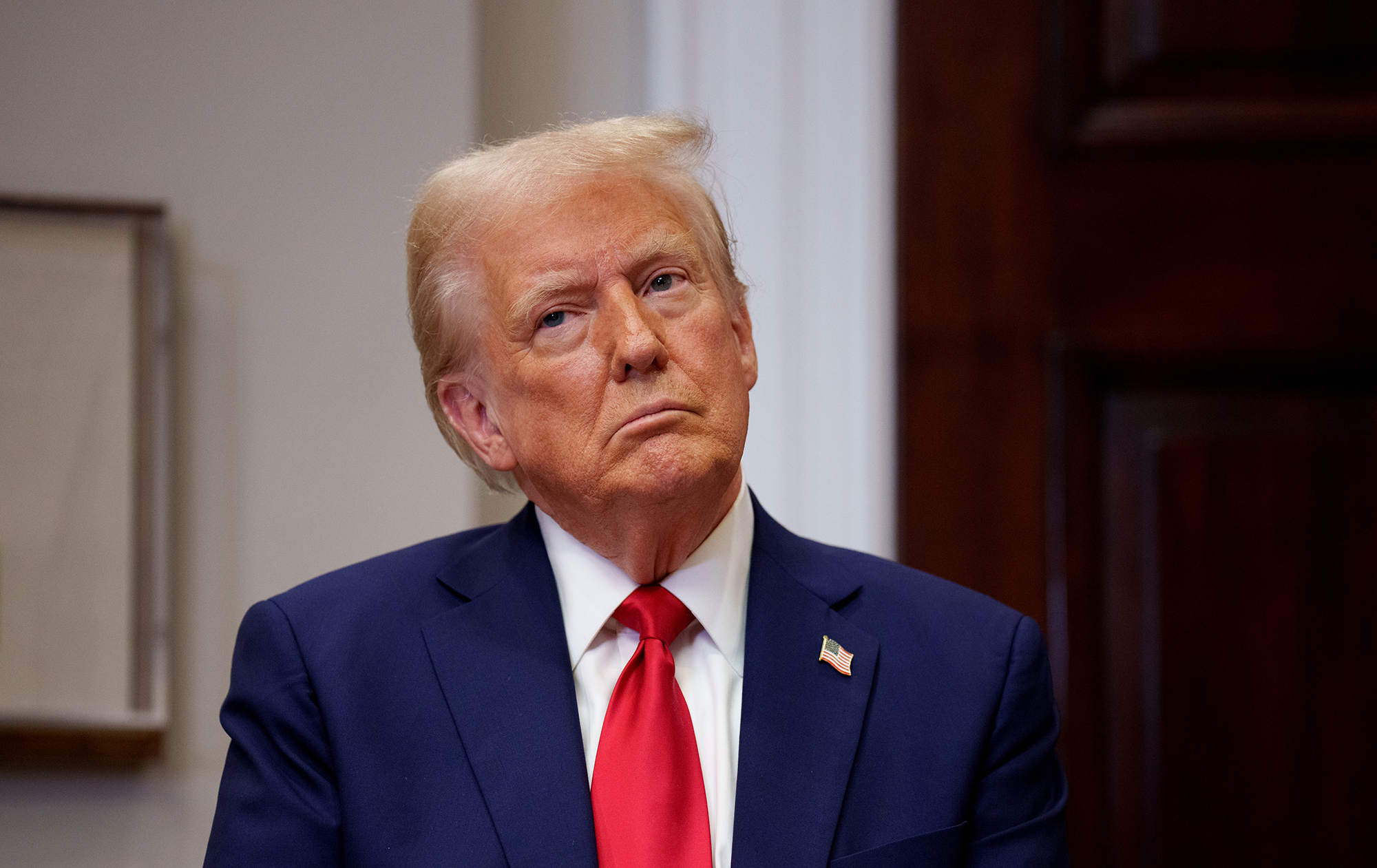
Photo: Donald Trump claims serious progress (Getty Images)
According to Trump, meetings are planned with Ukraine, Russia, and various parties. This likely refers to Europe, which Trump aims to assign a significant share of responsibilities for security guarantees, ensuring peace, and Ukraine's reconstruction.
From February 3 to 8, a series of events under the Ukrainian Week is taking place in Washington, with negotiations expected to be held with Trump’s team. It remains unclear when a meeting with Zelenskyy might occur. According to Ukraine's Ambassador to the US, Oksana Markarova, preparations will take some time.
Vladimir Putin is ready for talks with the US and is waiting for signals. According to Reuters, high-ranking Russian officials recently visited Saudi Arabia and the UAE, which could be considered potential venues for a future meeting with Trump.
Keith Kellogg has announced the existence of a "good, solid plan" to initiate negotiations. He stated that Volodymyr Zelenskyy is ready to make concessions, and Putin will have to do the same. Secretary of State Marco Rubio believes that neither Moscow nor Kyiv will achieve their maximum goals. "That`s going to be the work of hard diplomacy which is what we used to do in the world in the past and we were realistic about it, but both sides in the negotiations need to give something," he added.
Historian and diplomat Roman Bezsmertnyi considers Trump’s statement about serious progress to be an exaggeration.
"Because apart from the fact that participants are getting a clearer picture of the tactical situation, Russia's tool, nothing significant has been revealed. Russia has launched an intensified information campaign globally, effectively flooding the information space with a barrage of narratives," he told RBC-Ukraine’s YouTube channel.
What Europe says about peace talks
French President Emmanuel Macron previously stated that Ukraine's capitulation is not in the interests of either the US or the EU. He also urged Kyiv to engage in "realistic discussions" regarding territorial issues. British Prime Minister Keir Starmer, during a meeting with German Chancellor Olaf Scholz, emphasized the importance of a strong position for Ukraine.
The Parliamentary Assembly of the Council of Europe (PACE) adopted a resolution calling for increased support. The text states that peace negotiations must include Ukraine and respect its right to independently determine its future. This requires a "peace through strength" approach, ensuring high defense capabilities.
In an interview with RBC-Ukraine, PACE President Theodoros Rousopoulos stressed the need to establish red lines during negotiations. He noted that if the occupied territories become part of Russia, this would not be the kind of peace worth supporting.
NATO Secretary General Mark Rutte also highlighted the importance of strong positions. "If a peace agreement is reached, it must be sustainable. We must ensure that he never, ever conquers even a single square kilometer of Ukraine again," he noted.
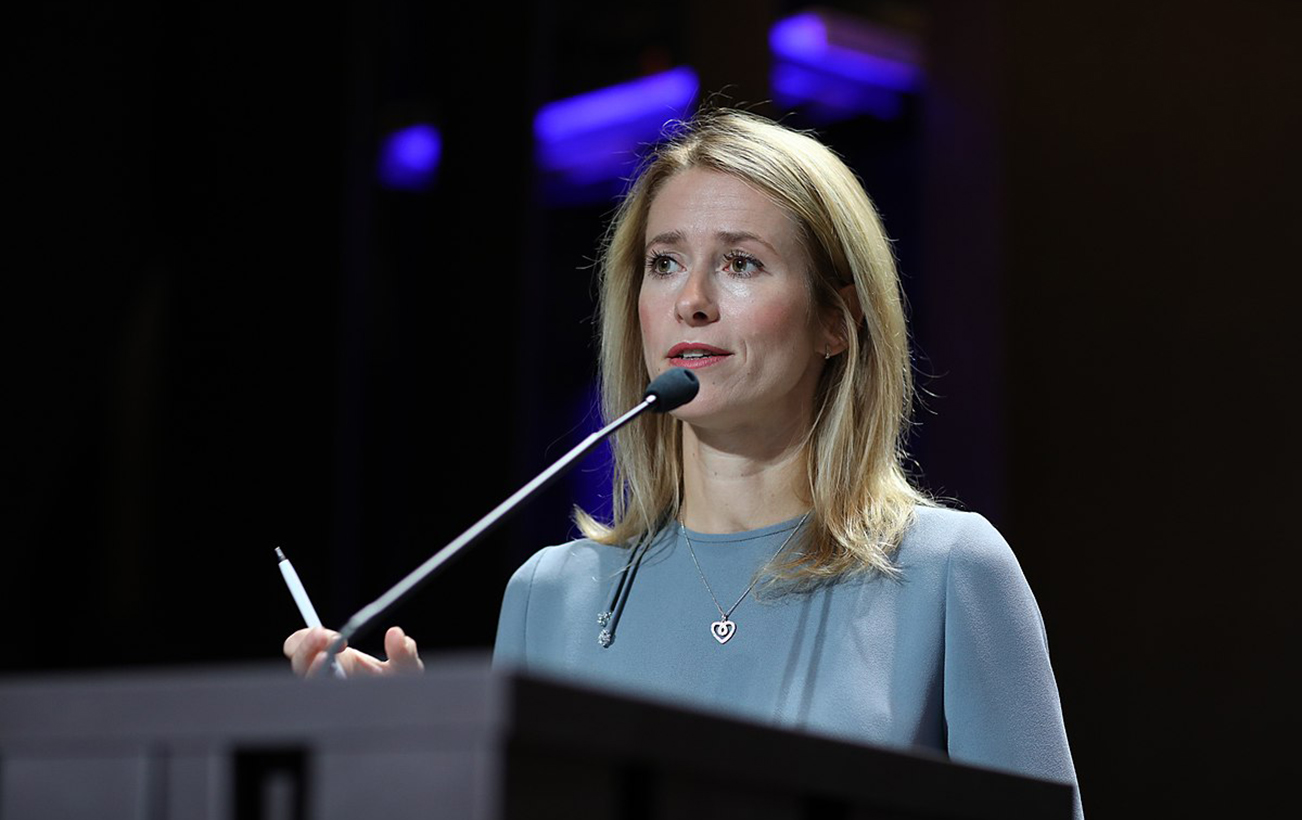
Photo: High Representative of the European Union for Foreign Affairs and Security Policy Kaja Kallas says peace talks cannot take place without Europe (wikimedia.org)
Polish President Andrzej Duda has expressed his desire for Poland to participate in peace negotiations. Finnish President Alexander Stubb believes that куфд peace talks will likely begin only after a ceasefire is established.
Czech Foreign Minister Jan Lipavský criticized Vladimir Putin for his remarks questioning the legitimacy of Ukrainian President Volodymyr Zelenskyy. According to Lipavský, the Kremlin’s leader must be forced to recognize Zelenskyy as the leader of a sovereign nation, and this should be one of the conditions for negotiations.
High Representative for Foreign Affairs and Security Policy Kaja Kallas dismissed Donald Trump's claims that Europe lags far behind the US in providing support to Ukraine. She highlighted that EU countries have contributed over €134 billion, making the bloc a leading donor. Kallas also stressed that negotiations cannot proceed without Brussels.
She added that any negotiations or agreements between Russia and Ukraine also concern Europe, which is why the principle of "nothing about Europe without Europe" is fundamental.
This demonstrates that European leaders acknowledge the necessity of their involvement in the process, in one form or another. Their stance is understandable, as the end of the war in Ukraine directly impacts Europe’s security. Moreover, European participation is in Ukraine’s own interest.
Why Zelenskyy wants Europe involved
Ukrainian President Volodymyr Zelenskyy explained that the format for launching negotiations with Russia will be determined during a personal meeting with Donald Trump.
“I believe that, first and foremost, we must hold a meeting with him (Trump - ed.), and that is important. And that is, by the way, something that everyone in Europe wants,” he said in a recent interview.
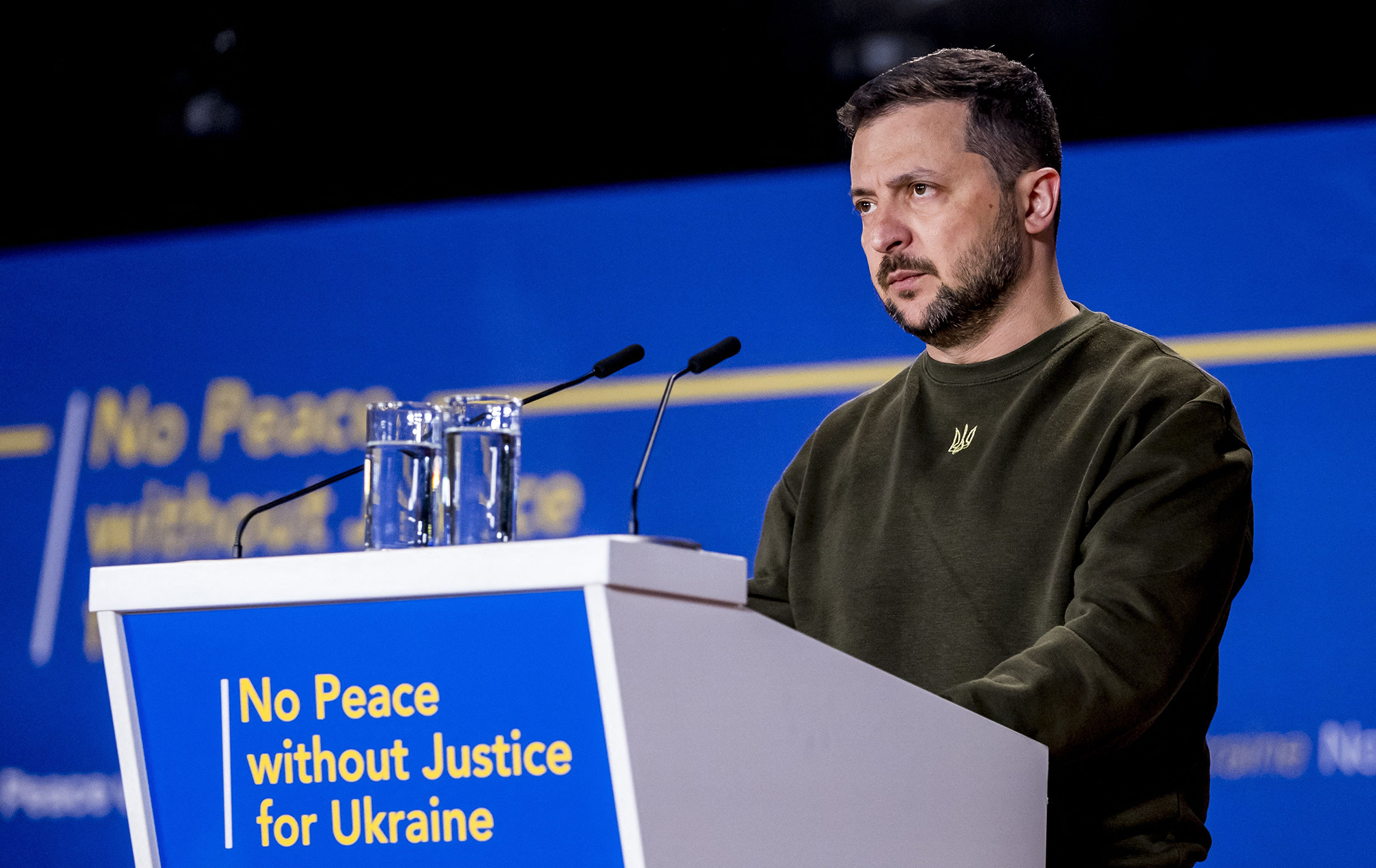
Photo: Volodymyr Zelenskyy wants to strengthen his negotiating position at the expense of Europe (Getty Images)
Today, he confirmed the first contacts with Trump’s team, specifically with National Security Advisor Mike Waltz and Special Envoy Keith Kellogg. The visit, including its dates and the composition of the US delegation that will work alongside Ukraine, is currently being coordinated.
Zelenskyy also supports the idea that the negotiation table should include not only Ukraine, Russia, and the US. According to him, the voice of the European Union should be heard. Clearly, the Ukrainian side seeks Europe’s involvement for several reasons, but the main goal is to strengthen its negotiating position.
"With all due respect to Trump and his efforts, he might make concessions that are not entirely acceptable to us. While there are no specifics yet, I think Ukrainian negotiators are not fully confident in the firmness of his positions. That’s why Ukraine needs to reinforce its position, and Europe is our best partner," explained Volodymyr Fesenko, head of the Penta Center for Applied Political Studies, to RBC-Ukraine.
Another reason appears to be that both Ukraine and the US support the idea that European countries should act as peacekeepers and security guarantors. From this perspective, they need to be part of the negotiations. However, the problem lies elsewhere.
"Will Russia agree? We see that it even opposes Ukraine’s participation under the pretext of the so-called illegitimacy of its government. But this is just an excuse to negotiate one-on-one with the US. They don’t want a third party involved, and with us, there is a fourth," the political analyst added.
This is evidenced by Putin’s recent statements. He notably claimed that Trump would soon bring order to relations with European elites, who would "stand by their master’s side and wag their tails affectionately." The remark is both degrading and blatantly inappropriate, but it reflects Putin’s unwillingness to have Europe involved in the talks. This is why it’s important for the US to support the idea.
Another factor is that if Europe participates, post-war security guarantees will take center stage, especially in light of Zelenskyy’s statements about a 200,000-strong security contingent. European countries view this pessimistically, and it is highly likely that Russia would not agree to the presence of NATO troops on Ukrainian territory.
Finally, Europe itself cannot decide whether it wants to participate or not. No concrete statements were made on this issue at yesterday’s informal EU summit.
"It’s in our interest to involve them, but there is still no unified position on who would represent Europe. The most likely scenario is that the European Union will take the lead, possibly represented by its top diplomat, Kaja Kallas. However, Poland, which currently holds the EU presidency, is also vying for this role, and there’s talk of a contact group that could include not only EU countries but also the United Kingdom. The idea aligns with our interests, but unfortunately, there are obstacles in its path," Fesenko added.
Sources: statements of US President Donald Trump, Ukrainian President Volodymyr Zelenskyy, European and American officials, and comments by diplomat Roman Bezsmertnyi and head of the Penta Center for Applied Political Studies Volodymyr Fesenko.

